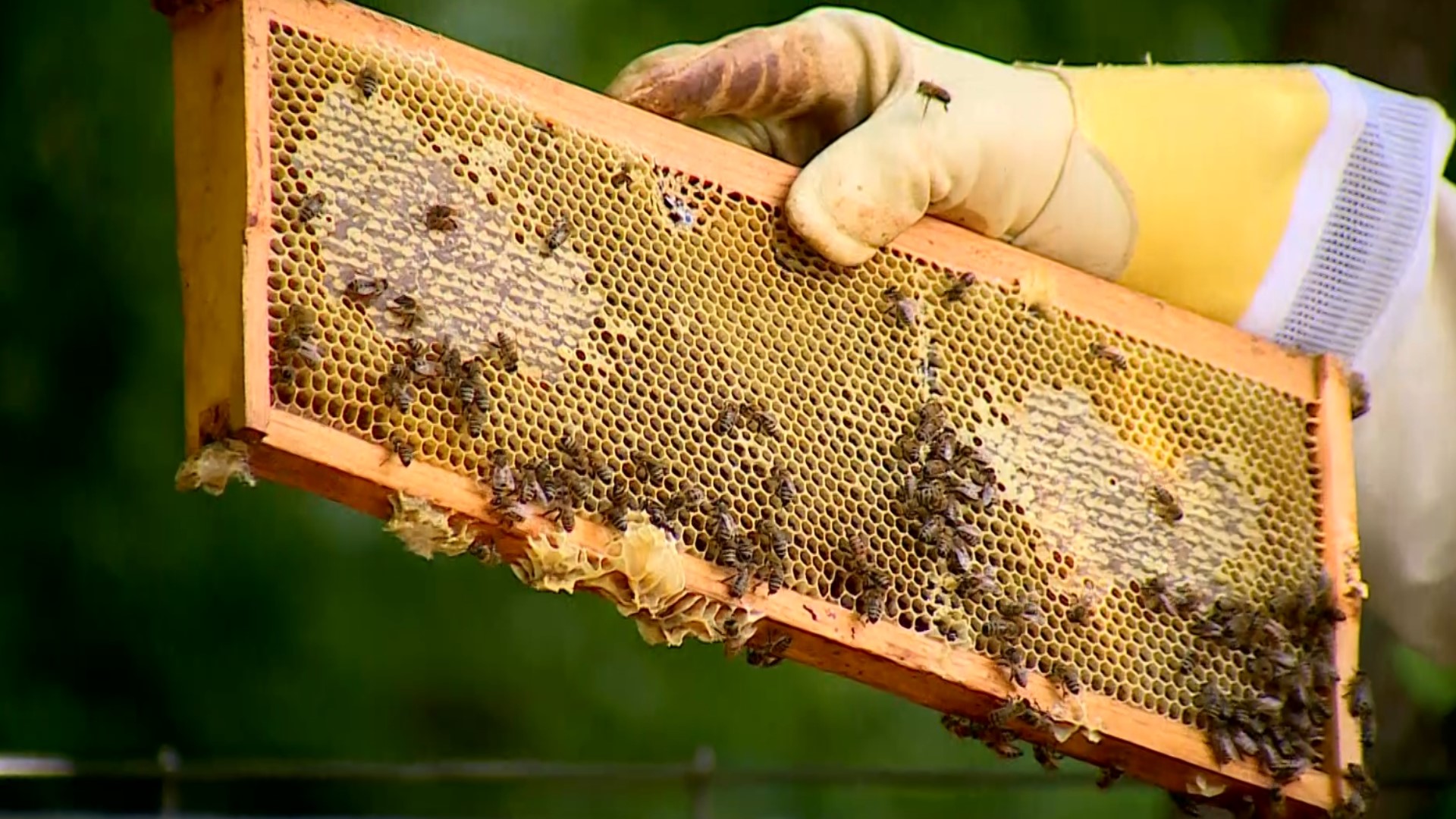FAYETTEVILLE, Ark. — Public institutions in Washington County have joined the sweet but vital craft of beekeeping.
The Fayetteville Public Library has had beehives on its southeast terrace since 2021 donated by honeybee farm, Hogeye Honey.
"It's vitally important that the literacy and education about bees are shared with the entire community," Director of Facilities, Sam Palmer said.
Master Beekeeper Ed Levi manages the beehives. The now-retired beekeeper started beekeeping in France 50 years ago, at one point maintained 300 beehives, and was the Arkansas apiary specialist and inspector. He also runs a queen breeding cooperative on the outskirts of Fayetteville.
"We got very lucky recently to have a chance at some honey bees, we've been growing many native plants around the grounds," Shiloh Museum Groundskeeper, Marty Powers said.
The Shiloh Museum of Ozark History recently received a donation of a beehive and the equipment needed for it. It belonged to Dr. Ted Lee Wiggins, a respected member of the NWA veterinary community, who died in 2022. His wife made the donation to the museum.
"You cannot overstate the importance of bees. Without pollination, we don't have food," Powers said.
"80% of our food is developed by bees, seeds, and things like that. Even onions that we don't think would be improved by bees, they can't make onion seeds without bees. California makes 80% of the world's almonds. And the bees have to be there because they need pollination in February and March. And they wouldn't make any almonds without bees." Levi explained.
Levi explained that bee populations keep declining as they suffer from parasites like varroa mites, pesticides, climate change, and colony collapse disorder. Levi suggests anyone interested in helping with the issue visit the Bee Informed Partnerships website.
"Last year, I think it was close to 40% of the bees in the United States were lost," Levi said.
This issue is why education on bees is becoming more accessible at public institutions like the museum and the library.
"Once you take the class and start learning about them, then you tend to get obsessed with them," Powers said. "I don't think anyone knows everything about them yet. And I think that's part of the draw, is a quest to learn more and more about them."
For anyone looking to participate in urban beekeeping, Levi explained the best way to get started is to join an association like the Northwest Arkansas Beekeepers Association.
"They line up new beekeepers with experienced beekeepers and they're there to ask questions and to demonstrate and to help go through the hives and, and in the last few years, we've been giving the new beekeepers beehives, and they've been buying their own bee equipment, but they've been getting freebies. So that's the best way, the best way is to have a mentor and belong to an association," Levi explained.
Levi says half a dozen hives per square mile may be enough to pollinate most of the area as bees can travel three miles from their hives. He says to check with your city's beehive ordinance before participating in urban beekeeping.
The Fayetteville Public Library offers literacy on bees available for checkout as well as beekeeping videos online. Powers said the Museum is currently working on education programs to teach about bees to the public.

